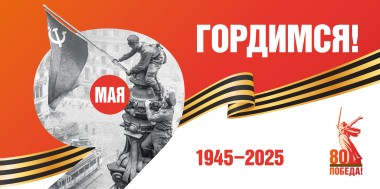The results of the 34th round of international discussions on security in Transcaucasia
December 8-9, 2015 in Geneva was held the 34th round of international discussions on security in Transcaucasia, attended by delegations of the Republic of South Ossetia, the Republic of Abkhazia, Georgia, the Russian Federation, the United States, as well as representatives of the EU, UN and OSCE.
South Ossetian delegation was headed by Presidential Envoy for post-conflict settlement Murat Dzhioev.
As usual, the work was conducted in two working groups: on security and humanitarian issues.
The first working group discussions, conducted in accordance with the 12 August and 8 September 2008 agreements, particular attention was paid to the issues of security and stability in the region and the non-use of force by Georgia against South Ossetia and Abkhazia. The South Ossetian delegation once again urged the participants in the discussions to intensify the work to elaborate a legally binding bilateral agreement on the non-use of force between Georgia and South Ossetia, Georgia and Abkhazia, which would have solid international guarantees.
It was also continued a joint expert work on the text of the joint statement of the participants on the commitment to the principle of non-use of force. However, due to the fact that the agreed text of that statement again failed, the South Ossetian delegation proposed as an intermediate step to make a verbal statement of the unilateral Declaration on thecommitment to the universally recognized norms of international law, including the principle of non-use or threat of force. It has also been proposed to use the earlier drafts of the statements. It was agreed to continue this work in the upcoming round.It was also a thorough exchange of views on security and stability on the South Ossetian-Georgian and the Abkhaz-Georgian border. It was noted the relative stability of the situation on the South Ossetian-Georgian border, characterized by lack of serious incidents. It was noted an increase in the number of violations of the state border by Georgian citizens. At the same time, the participants were concerned about the provocative actions staged by the Georgian side to damage the South Ossetian border marks and protective barriers erected along the state border on the South Ossetian territory.
South Ossetian participants on behalf of the Government reiterated the proposal to start a bilateral joint work on delimitation and demarcation of the state border between South Ossetia and Georgia, which would remove a large complex of problems associated with the lack of border agreements.
South Ossetian participants clarified the absolutely groundless claims of the Georgian side regarding the deployment of border troopsof the Russian Federation in the area of the southern slope of the Mamison Pass, located on the state border between the Republic of South Ossetia and the Russian Federation.
The panelists gave a positive assessment of the Mechanism for preventing and responding to incidents (IPRM), as an important factor of stability and security on the South Ossetian-Georgian border.
The representatives of South Ossetia expressed concern over the increasing threat to stability and security in the region due to expansion and intensification of NATO structures in Georgia, taking place against the backdrop of sabotaging the work on a legally binding agreement on the non-use of force by representatives of Georgia and aggressive statements of the Georgian authorities. It was stated the statements of representatives of NATO, which could be interpreted as support for revanchist intentions of Georgia against South Ossetia and Abkhazia.
There were also discussed humanitarian issues, as well as to address the issue of the fate of the missing persons and the residents of South Ossetia illegally convicted in Georgia.
The participants have expressed hope that the work of a specially invited international expert on the missing persons` cases will help to clarify the fate of the citizens of South Ossetia, considered to be missing. South Ossetian participants reiterated the willingness of the South Ossetian authorities to address the issue on mutual release of prisoners.
When discussing the issues of cultural heritage was once again raised the question to return the ancient icon-triptych stolen from the Museum of South Ossetia and now located in Georgia.
The panelists did not discuss the issue of refugees. Resumption of discussing this issue will be possible if Georgian authorities cease artificial politicization of this question.
Due to unconstructive position of representatives of the Georgian delegation, trying to impose their own agenda and the connivance of the EU representative Ambassador Salber, presiding at the first working group, the work of the session was not completed in accordance with established order.
On the eve of the 34th round of discussions was held the information session dedicated to the international experience of the recognition of identity cards and travel documents for the population of the regions affected by conflict.
Another round of discussionsis tentativelyagreedto be held inMarch 2016.
